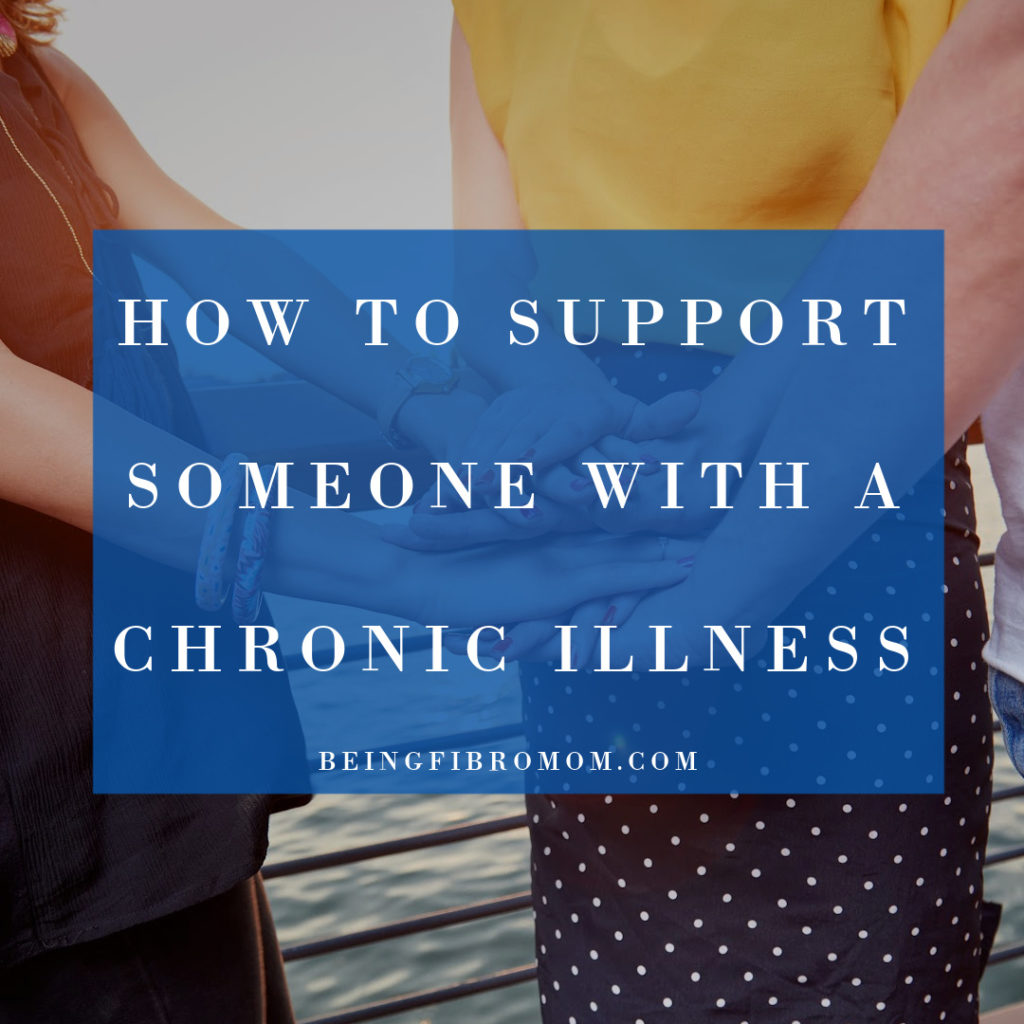For those of us living with a chronic illness, we know what we need as support from our family and friends. Those that do not live with a chronic illness, may not know how to support their friends and/or family living with a chronic illness. Here are some tips on how to support someone with a chronic illness.
Be understanding if plans are changed
Flares and other symptoms wax and wane without warning. Someone with a chronic illness can be okay one moment then very quickly change to quite ill the next minute. Having supportive family and friends that understand this – and not make us feel guilty for canceling – is essential to an effective support system.
Ask and Listen
Ask them, ‘How is your day going?’ and then…just listen. They may need someone to listen as they unload their troubles, worries, or thoughts. We don’t always need to offer a solution, help, or other advice. Sometimes just asking and listening is a lot of help for someone.
Don’t pretend to understand
Sometimes not knowing what to say is okay. Often times silence is calming. Offering kind, but false, words are not always the answer. Be honest and let your family/friend with chronic illness know that you may not understand what they are going through, but you are there for support.
Do your own research about their chronic illness
Telling someone else about living with a chronic illness can be difficult. We don’t know how much to tell the other person about our illness. Too much and it can be overwhelming for the other person. Too little and they are left in the dark about our illness.

Effectively Communicating Your Illness
If you have made the decision to tell others about your illness you may feel confused as to what to say or how to say it. You may not know how to tell the other person how they can help you, and be supportive in a way that is not pitiful, guilt-ridden, less than, or upsetting. Here’s how to tell others, how much to tell others, and how others can help.
Take their kids for a play date
If you are willing to watch their kids, call to let them know your kids would love to play with their kids and then offer to pick them up and take them home. This would be a great chance for your family/friend with a chronic illness to get some peace and quiet without feeling guilty about asking. This will work wonders for someone feeling ill!
Ask about appointments
Write down when your family/friend with a chronic illness has physical therapy, physician appointments, or labs done, then call around that time to ask how it went. Often times these appointments are draining – emotionally and/or physically. Having a family/friend that calls to check on us shows that we have a reliable support system.
Know What to Get
If you’re the type of person who likes to get a little thoughtful gift for a friend or loved one, then do it. It’s okay as long as it’s not over the top or extravagant to the point the recipient feels awkward or uncomfortable. Here are some ideas for someone living with a chronic illness (click below for more self-care gifts from my Amazon store).



Be Present and Reliable
Not in an overwhelming, constantly in-your-face type of presence, but be there when your family/friend with chronic illness calls you. Be reliable if you tell your family/friend that you will be there to listen or lend support when they need it.
Text, Message, or Email
Personally, I can’t always take a call. It may be loud kids or I just don’t feel well; however, I always get happy to see text messages, Facebook messages, or emails from my family and friends.
Let them know you appreciate the time spent together
It’s hard to get off the couch or out of the house to follow through with plans, so having others understand and appreciate that effort means a lot.
This article was originally written for the website ‘Living the Diagnosis’ on April 12, 2016. Visit the original post here.

